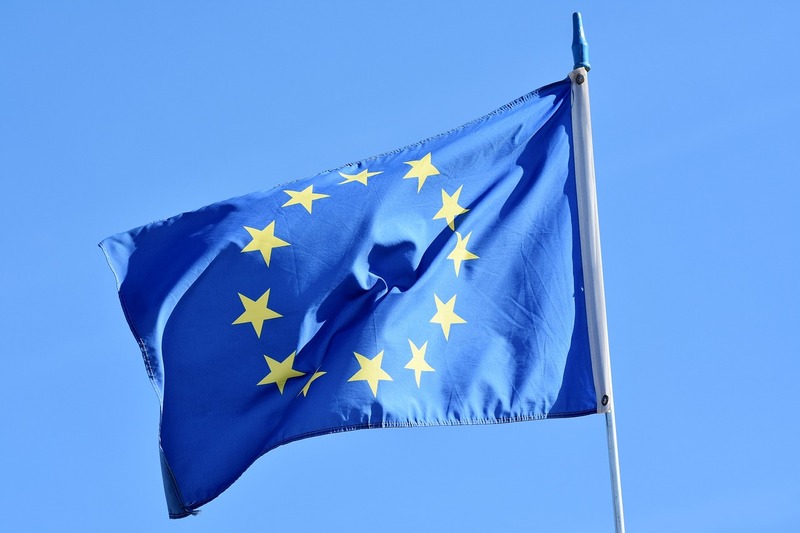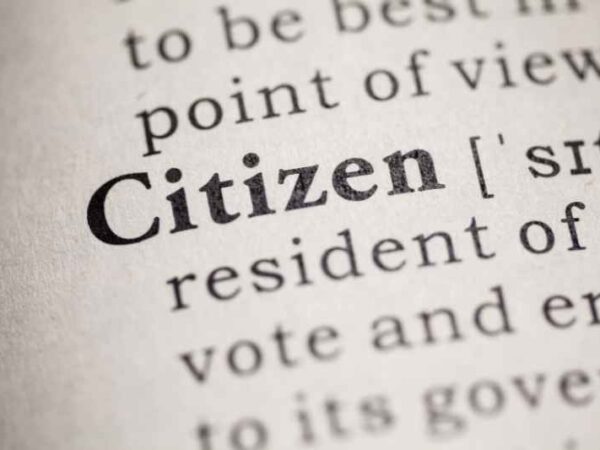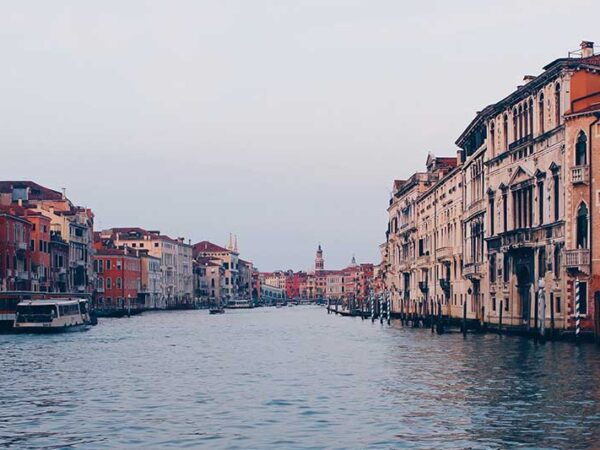Following a very close referendum in 2016, the United Kingdom left the European Union in January 2020. The British withdrawal from the EU had its advantages, but one major disadvantage was the impact Brexit had on the United Kingdom’s access to Europe.
New trading partners outside the EU had to be found as exports to, and imports from, the remaining 27 European Union member states all but disappeared. As part of the Brexit negotiations, it was agreed to extend British citizens’ right to visa-free travel in Europe and the Schengen Area for more than a year, but this grace period has now expired.
Starting in 2023, the European Union is introducing ETIAS (European Travel Information and Authorisation System), which will require nationals of all countries that are not members of the EU or Schengen Zone to be approved for admission to the greater European area.
The ETIAS requirement will not affect EU or Schengen Area nationals which is one of the major advantages of being an EU citizen. People born in any of the European Union member states are automatically deemed to be EU citizens. But is this the only qualification that is required, or can EU citizenship be acquired by other means?
EU Citizenship
An EU passport is widely regarded as one of the most beneficial to possess. Not only is it readily accepted across the globe, but the holder can also travel visa-free to many of the world’s most popular countries.
An EU passport holder is entitled to roam freely throughout all 27 EU member states with no limit on the time spent in any one country. This compares very favourably with a standard Schengen Visa, which only permits the holder to remain in the Schengen Area for a maximum of ninety days out of one hundred and eighty.
An EU passport also allows the holder to live and work in any European Union country, avail of medical services, and even transfer social welfare payments from one country to another.
The simplest way of acquiring an EU passport is by birth. A citizen of any European member state is automatically entitled to apply for and receive a passport in their country of birth. This passport will bear the emblem of the European Union.
But EU citizenship by birth is not the only way. There are three ways to become an EU citizen:
- Ancestry
- Naturalisation
- Investment
Although every EU country allows for citizenship through these three methods, regulations and conditions will vary from country to country.
Three Methods of Attaining EU Citizenship
The following is a brief outline of the three qualifying methods for becoming an EU citizen:
Ancestry
Being born in a European Union country is an automatic qualification for EU citizenship, but this can also apply to direct descendants of the EU citizen. This will usually mean the children of the EU citizen, but in many cases, this has been extended to grandchildren or even great-grandchildren.
In order to qualify by ancestry, the parent, grandparent, or great-grandparent must still be a EU citizen even if they have emigrated to a non-EU country. It is necessary for the potential EU citizen to prove the relationship, and it may also be necessary to show that the applicant is dependent on the EU citizen. Proving any relationship is crucial and will require supplying supporting official documentation.
Those who may qualify under ancestry or because of a relationship include:
- Spouse or legally recognised partner of an EU citizen
- Parents of EU citizens under 21 years of age who are dependent on parental support
- Dependent and unmarried children (under 21) of EU citizens
- Dependent children, grandchildren (occasionally great-grandchildren) of EU citizens
- Dependent parents, grandparents (occasionally great-grandparents) of EU citizens
- Dependent parent or child of the spouse of an EU citizen
Third-generation qualification (from great-grandparents to great-grandchildren) for citizenship is not available in every EU member state as only 9 of the 27 countries operate this scheme. These countries are Bulgaria, Greece, Hungary, the Republic of Ireland, Italy, Lithuania, Luxembourg, Poland and Slovakia.
Applying for EU citizenship via ancestry or relationship is a complicated and lengthy process. A comprehensive application form must be completed, and the EU citizen must provide a range of supporting documents.
Depending on the precise nature of the relationship between the EU citizen and the applicant, the documents requested may include the following:
- Birth certificates
- Marriage certificates
- Death certificates
- Previous passports
- Refugee documentation
These are just the most likely requirements, but there are likely to be many more, particularly if it involves a blood relation. The processing time is also likely to be a problem as it can take anywhere from a few months to a year or more to elicit a response from the relevant authorities.
It should also be noted that attaining EU citizenship by this route can be expensive. Many countries demand fees of up to €1,000 (£885), not including the costs incurred in obtaining the required documentation or any associated legal fees.
Naturalisation
A popular route to EU citizenship is naturalisation. This can be achieved, in most cases, in two ways: work or marriage.
Through Employment
In order to apply for EU citizenship through employment, it will be necessary to have lived and worked in the desired EU country for a minimum period of five years. However, this may be longer in certain countries.
To achieve this, a work visa or permit for the country in question will first be necessary. A Schengen Visa is not sufficient as this does not permit the holder to work or to remain in a Schengen state for any longer than ninety days.
The most common (and probably the best) form of work permit is the EU Blue Card which is not always easy to obtain. Qualification for a Blue Card is based on a points system. Applicants must obtain a set number of points which are awarded according to the applicant’s level of education, work experience and other qualifying work skills. Access to the job market in EU countries may also depend on an applicant having an offer of employment and sponsorship from an employer.
Through Marriage
Marrying an EU citizen is an accepted route to citizenship, but this is subject to certain terms and conditions which vary from country to country. If the marriage partner is a native EU citizen, then his or her spouse can usually apply for citizenship in as little as three years.
However, if the marriage partner was not born in the EU or Schengen Area, then different criteria will apply. The exact requirements are different in each country. Still, a basic understanding of the country’s legal and social structures and a working command of the language will likely be necessary.
Investment
Once a common practice in many of the EU member states, citizenship by investment is now only available in a handful of European countries. Often referred to as a “Golden Visa” or “Golden Passport”, this method of acquiring EU citizenship is primarily the domain of the very wealthy as a considerable financial investment is a basic requirement.
Non-EU nationals wishing to acquire an EU passport must invest considerable sums of money in the country of choice. This can be done in a number of ways, with each country still operating the scheme having its own rules and regulations.
Currently, only four EU nations still offer citizenship by investment:
Malta
Purchasing real estate with a minimum value of €700,000 (£620,000) provides investors with an expedited route to citizenship in under three years. Real estate is not the only option, as investors can also purchase government bonds of the same value or donate to government-approved organisations.
Portugal
Not as straightforward as the scheme in Malta, Portuguese citizenship by investment requires foreign nationals to invest €500,000 (£440,000) and reside in the country for five years before applying for citizenship.
Spain
Similar to Portugal, Spain requires an investment of €500,000 (£440,000) in real estate but does not grant citizenship immediately. This can only be done after ten years have passed.
Greece
The cheapest of the four options is Greece, which only requires an investment of €250,000 (£220,000). In order to qualify for a Greek passport, however, applicants must live in the country for a minimum period of seven years.
Although Germany no longer operates a Golden Passport scheme, it is possible to acquire German citizenship by opening a business in the country. The business must provide jobs for German citizens and benefit the country economically.
In order to qualify for this scheme, a non-EU national must first obtain a self-employment visa and operate the new business for a minimum of six years.
The rules regarding citizenship vary in each country. While some countries do not require applicants to reside in the country for more than a short period every year, others will insist on the applicants actually living in the country. The amount of money that must be invested and what it may be invested also varies with real estate, government bonds and stocks or shares often offered as the alternatives.
Non-EU nationals granted a passport from any of the EU member states have basically the same rights and entitlements as native EU citizens. These include the right to live and work in the country and receive the same health and social benefits available to native nationals, although there may be some exceptions.
They also have the same access to all EU (and Schengen Area) countries without the need for ETIAS approval or a Schengen Visa.




